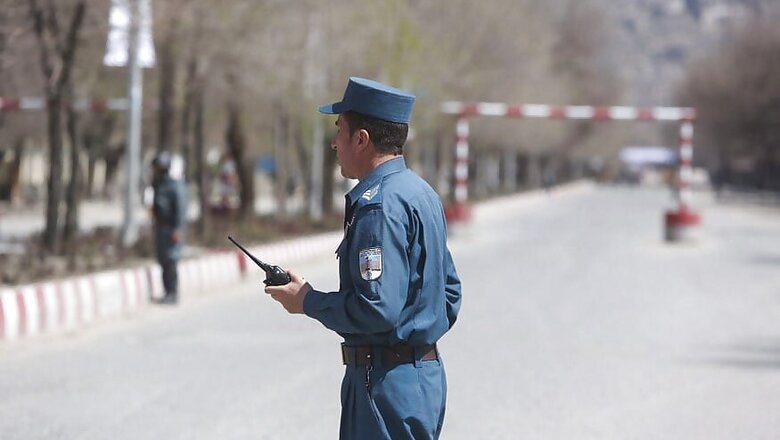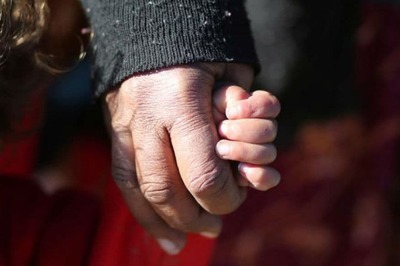
views
Kabul, Afghanistan: A suicide attack rocked the Afghan capital Kabul early Tuesday, the interior ministry said, with civilian casualties feared in what appeared to be the first major assault in the city in months.
No group immediately claimed responsibility for the attack, which comes after nearly three months of relative calm in the capital. "The explosion was a suicide attack with civilian casualties," the ministry of interior's deputy spokeswoman Marwa Amini said.
A witness near the scene in western Kabul confirmed the blast, saying it happened near the Marshal Fahim military academy.
"It was a big explosion that rocked our house. We also heard gunfire afterwards. Ambulances rushed to the area quickly," resident Samiullah, who goes by one name, told AFP.
The Kabul police chief confirmed the location, according to a local broadcaster.
The Taliban have refrained from attacking major urban centres in an effort to keep talks with the US on track, though violence in the provinces has continued.
The last major attack in the capital was in November when at least 12 people were killed when a minivan packed with explosives rammed into a vehicle carrying foreigners during Kabul's morning rush hour.
Four foreign nationals were among those wounded in the attack that targeted an SUV belonging to a private Canadian security company, GardaWorld -- in a crowded neighbourhood near the interior ministry and north of Kabul airport.
The military academy has been the scene of several attacks in the past, including an Islamic State-claimed assault last May.
Tuesday's attack comes as Washington and the Taliban wrangle over a possible deal that would see US troops begin to leave Afghanistan in return for security guarantees.
However, there appears to have been little progress in reaching a deal in recent weeks, prompting the insurgents to saddle blame on the White House and what they say are a growing list of demands by the Americans to pave the way for a deal.
The US and Taliban had been negotiating for a year and were on the brink of an announcement in September 2019 when President Donald Trump abruptly declared the process "dead", citing ongoing Taliban violence.
Talks were later restarted in December in Qatar, but paused again following an attack near the US-run Bagram military base in Afghanistan.
As talks have fluctuated, violent attacks in the country have raged, with the number of clashes jumping to record levels in the last quarter of 2019, according to a recent US government watchdog report.




















Comments
0 comment